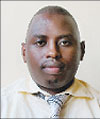Last Wednesday, Lake Kivu’s Iwawa Island hosted an unusual graduation fete. As many as 752 former street kids were the graduands of the day, whose unlikely feat dramatically brought an end to criticism of the government’s decision to enlist hundreds of street children to the newly established Iwawa Rehabilitation and Vocational Training Centre. We should remember that the early days of the centre were, of course, without drama.


Last Wednesday, Lake Kivu’s Iwawa Island hosted an unusual graduation fete. As many as 752 former street kids were the graduands of the day, whose unlikely feat dramatically brought an end to criticism of the government’s decision to enlist hundreds of street children to the newly established Iwawa Rehabilitation and Vocational Training Centre. We should remember that the early days of the centre were, of course, without drama.
Just in the same way everything initiated by Rwandans to solve their own problems in the recent years, from Gacaca courts, to Imihigo and TIG, have all been unfairly criticized and given all sorts of names, until the world woke up to their phenomenal success. Naturally, like many other homegrown initiatives, the Iwawa project has defiantly gone on to deliver commendable results in such a short period.
When the Iwawa Rehabilitation and Vocational Skills Development Centre (IRVSDC) opened doors, early last year, I was at the time working with the Workforce Development Authority (WDA), a government body which has since been closely involved with the vocational centre.
And as soon as the Government decided that homeless and destitute youths should be among the first to benefit from the new policy on Technical and Vocational Education and Training (TVET), WDA, as the principal institution charged with implementing the policy, immediately swung into action to execute the decision. Since then, WDA offices became a beehive of activity.
However, on a one bright morning, precisely on April 30, when everyone at work was doing their best to see to it that IRVSDC started on a firm foundation, we were shocked to learn that this great project had just been added to the ever-growing list of the homegrown initiatives that have increasingly been targeted, and often misrepresented, by foreign media and rights activists. I was in charge of Marketing and Communication.
I must say that was one of the worst mornings in my work experience. Thanks to my earlier stint in journalism, my colleagues always regarded me more as a journalist than a civil servant working with an education-connected agency.
That morning everyone came to my desk almost yelling. They asked, "What’s wrong with you, media people?”, "Can you imagine some newspapers are branding Iwawa vocational school a prison?”, "How long shall media stop lying about Rwanda,” et cetera. They were justified. Many of them had spent days working themselves into the night to ensure that the necessary training equipment for the new school arrived on time, and to identify the instructors who would be transferred to the Island to train the youths.
All the anger was in response to a New York Times story that reduced the training centre to a prison camp. In the story titled, ‘Rwanda Pursues Dissenters and the Homeless’, by Jeffrey Gettleman, alleged: "Nearly 900 beggars, homeless people and suspected petty thieves, including dozens of children, have recently been rounded up from the nation’s neatly swept streets and sent — without trial or a court appearance — to this little-known outpost.” The article portrayed the vocational centre, despite all the good intentions behind its establishment, as nothing but a prison facility, where loitering minors, petty thieves and street baggers were dumped.
In spite of the fact he was invited and generously transported to the very school by the government, Mr Gettleman, claimed that the government had dispatched these innocent souls to a dangerous, isolated ‘jail’ he likened to the US’ infamous Alcatraz.
Based on the NYT article, one publication described Iwawa as Rwanda’s ‘Island of shame’. That’s how the otherwise sinspiring story of Iwawa was tragically distorted by the Western media.
Looking back at the way the hard-working staff at WDA were hugely disappointed by an unfair coverage of a great project, I understand why some institutions, often times, think the media are just obsessed with reading mischief from everything they do. Unfortunately, the case of Iwawa and how it was twisted by the media seems to back that impression.
Last Wednesday’s events proved that the centre was hosting energetic and healthy students, and not the supposed inmates as the NYT had suggested. It is such a shame for us in the media. Now equipped with hands-on skills in different technical areas, these youths have a second chance in life.
I had the opportunity to work with a public institution during my two-year break from journalism. During that time, I discovered several weaknesses in public service, but I also saw first-hand how genuine and hardworking government officials and bureaucrats can sometimes be in serving the people. It hurts when your good intentions and efforts are discredited by a party which you thought should be reporting, and not fabricating stories.
Yes, the media should keep governments in check. But the media, too, should learn to acknowledge mistakes and swallow pride whenever proved wrong. The Iwawa story is a good lesson.


